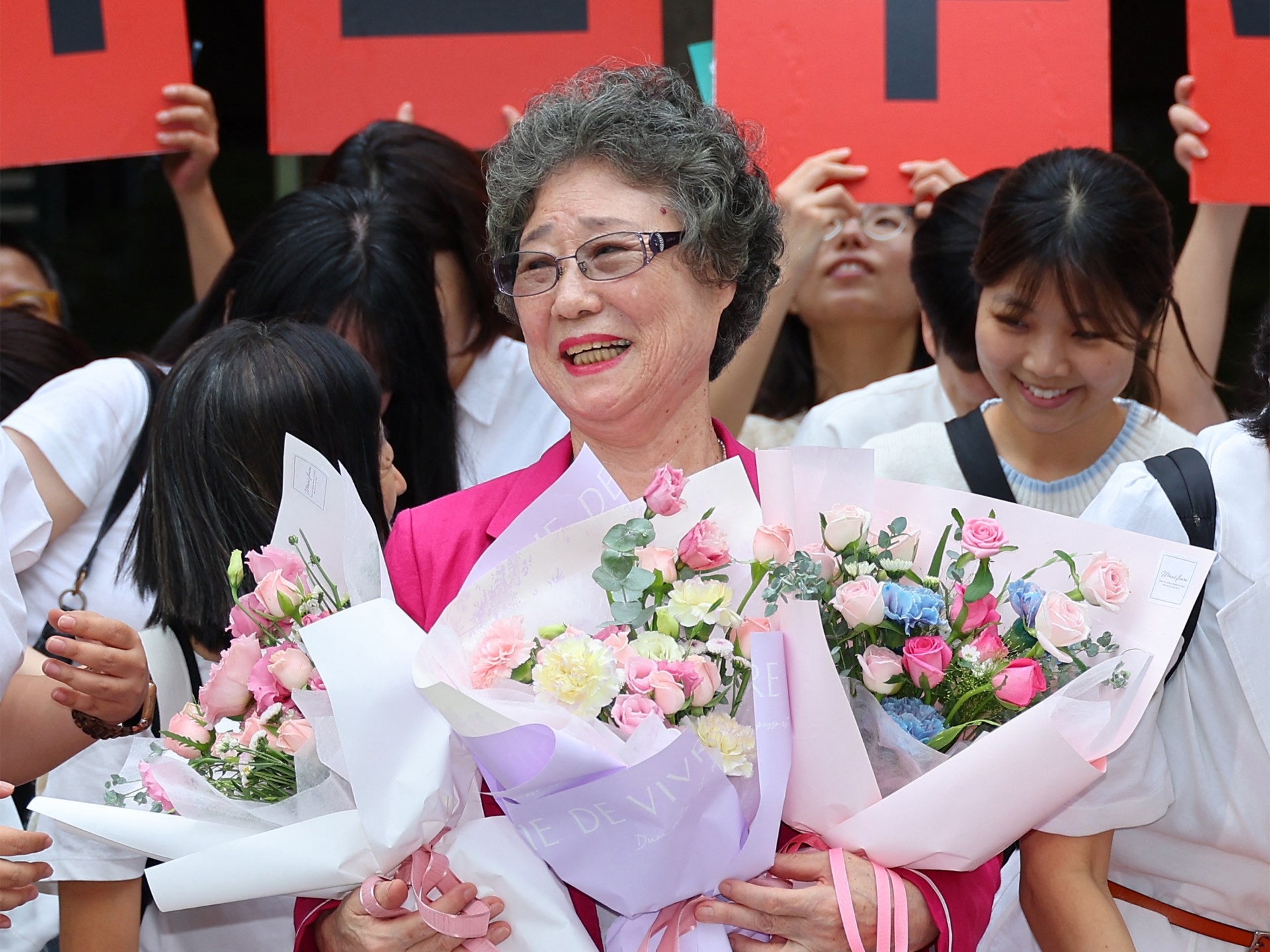A South Korean court has acquitted a woman previously convicted for defending herself against an act of sexual violence six decades ago.
Busan’s District Court overturned the previous ruling on Wednesday, saying Choi Mal-ja’s actions “constitute justifiable self-defence” under South Korean law.
Recommended Stories
list of 3 itemsend of list
Choi’s actions at the time are now “deemed an attempt to escape an unjust infringement on her bodily integrity and sexual self-determination”, the court said in a statement.
The ruling overturns Choi’s 1965 conviction, when the court found her actions had “exceeded the reasonable bounds of legally permissible self-defence”.
Choi, who was 19 at the time of the incident, was attacked by a 21-year-old man in the southern town of Gimhae in 1964.
The man pinned her to the ground and repeatedly forced his tongue into her mouth, at one point blocking her nose to stop her from breathing, according to court records.
Choi managed to break free by biting off about 1.5cm (0.6 inches) of his tongue.
In one of South Korea’s most contentious rulings on sexual violence, the aggressor received only six months in prison, suspended for two years, for trespassing and intimidation – but not attempted rape.
But Choi, now 79, was convicted of causing grievous bodily harm and handed a 10-month prison sentence, suspended for two years.
Wearing a bright pink blazer, Choi beamed as supporters handed her multiple bouquets after the new ruling.
Women’s rights activists and her supporters celebrated, many visibly emotional, waving a placard that read, “Choi Mal-ja did it!”
“Sixty-one years ago, in a situation where I could understand nothing, the victim became the perpetrator, and my fate was sealed as a criminal,” Choi said in a news conference following the ruling.
“For the victims who shared the same fate as mine, I wanted to be a source of hope for them,” she said.
The Korea Women’s Hotline (KWH), one of the groups that supported Choi during the trial, said the verdict will pave the way for other victims of sexual violence seeking justice.
“Going forward, women’s defensive acts will be understood as legitimate. I expect this will mean fewer women will face unjust suffering,” says Song Ran-hee, head of the KWH.
Choi’s appeal gained momentum after the #MeToo movement, which took off globally in 2017, inspired her to seek justice.
In South Korea, huge women’s rights protests have led to victories on issues ranging from abortion access to tougher penalties for spycam crimes.
Choi filed for a retrial in 2020, but lower courts initially rejected her petition.
After years of campaigning and an appeal, South Korea’s top court finally ordered a retrial in 2024.
Her lawyers said they now plan to seek compensation from the state for the damages she suffered from her conviction six decades ago.
Source: Aljazeera

Leave a Reply